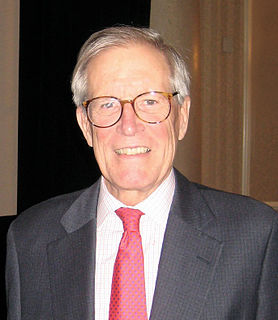A Quote by H. G. Wells
The crisis [the Great Depression] discovered a great man in Franklin Roosevelt...None too soon he has carried America forward to the second stage of democratic realization. His New Deal involves such collective controls of the national business that it would be absurd to call it anything but socialism, were it not for a prejudice lingering on from the old individualist days against that word...Both Roosevelt and Stalin were attempting to produce a huge, modern, scientifically organized, socialist state, the one out of a warning crisis and the other out of a chaos.
Quote Topics
Absurd
Against
America
Anything
Attempting
Both
Business
Call
Carried
Chaos
Collective
Controls
Crisis
Days
Deal
Democratic
Depression
Discovered
Forward
Franklin
Franklin Roosevelt
Great
Great Depression
Great Man
His
Huge
Involves
Lingering
Man
Modern
National
New
New Deal
None
Old
Organized
Other
Out
Prejudice
Produce
Realization
Roosevelt
Second
Socialism
Socialist
Soon
Stage
Stalin
State
Too
Warning
Were
Word
Would
Would Be
Related Quotes
The government is now in a position to do what Franklin D. Roosevelt did during the Great Depression of the 1930s - use a crisis of the times to create new institutions that will last for generations. To this day, we are still subsidizing millionaires in agriculture because farmers were having a tough time in the 1930s.
In the great depression, things could only be set right by causing the idle plant to work again . . . Roosevelt . . . spent billions of public money and created a huge public debt, but by so doing he revived production and brought his country out of the depression. Businessmen, who in spite of such a sharp lesson continued to believe in old-fashioned economics, were infinitely shocked, and although Roosevelt saved them from ruin, they continued to curse him and to speak of him as 'the madman in the White House.' . . . [It's one more] striking example of inability to learn from experience.
Capitalism can be alright, I mean Karl Marx didn't live to see what Roosevelt did with that Depression. He pulled everybody out of that Depression and everybody hated Franklin Roosevelt. He got into office four times. One after the other, with everybody saying, he can't get in again. Everybody voted for Roosevelt four times and he did a hell of a lot.
Franklin Roosevelt is one of the great leaders because he does get along with other people. He makes this huge effort. He's a very charming man. He tries to bring Joseph Stalin and Winston Churchill into this tripartite agreement to run the world. And he really was close. If he hadn't died in April of '45, the whole history would be different.
After World War II the Republicans - the Wall Street crowd - were very worried about a depression coming back. They hated Franklin Roosevelt in that crowd, my father among them. And there was a great fear in '46 that we'd fall back into the pits. And they always wanted to break up the Roosevelt legislation.
I can't tell you how many times at the breakfast table my dad would curse out Franklin Roosevelt. I love my father. He was an intelligent man, but he really didn't like regulations of the Roosevelt style, or the taxes. He was an Dwight Eisenhower man. And that's what Eisenhower did, committed to breaking down the program.
In America, we may acknowledge Washington and Lincoln as great men, and probably Franklin and Jefferson and maybe Franklin Delano Roosevelt and possibly even several more, but we would probably disagree about precisely what it was that made them great, what it was that enabled them to give a lasting direction to the course of events.

































